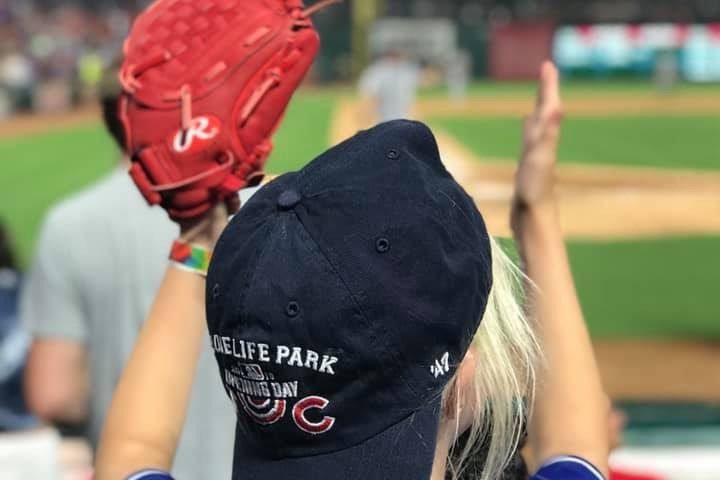Baseball is a place as much as it is a game.
Unlike any other sport, baseball is an aesthetic; its beauty is moral. The lines, the field, the colors, the sounds, the crowds and the players all together create a form of the good that relates to the soul. The moral appeal of the agony of competition, true of all real sports, explains our deep love for the games we play and watch. Yet in baseball this includes more than strictly the game. It includes also the places it’s played. Like what churches used to be, ballparks remain hallowed sanctuaries of beauty, sites of rituals conjuring divine things bigger than itself.
It’s also a thoroughly American aesthetic. That is, it’s part of our poetry. To enjoy “picnics or jigs or a good game of base-ball,” Walt Whitman wrote, is to belong to America’s “athletic Democracy,” to sing one of the varied carols of our land. It’s also how we sing a better us in singing the history of the game. The injustice and beauty of the Negro Leagues, the immigrant diversity of today’s game, the colors of crowds in ballparks across the country: it’s an aesthetic of America at her best, a parable of an idea of the nation we’ve never fully become, but which we must still fight for.
It’s why baseball is exceptional, why it belongs uniquely to the soul of America. Baseball is our history, our present and our future as much as it’s our game. No other game we play is like this. No other game mirrors us so much.
This is why I take my kids to baseball games. It’s like taking them to church, in a sense, grafting them into a story bigger than themselves. Baseball presents an idea of America that has endured its worst historical realities and that has, in significant ways, changed America for the better. The Black Sox, the steroid era, Jackie Robinson, Elvis Andrus’ American citizenship, for example: these are baseball’s stories which, as they’re woven into the athletic joy of the game, form us morally. Told within the love of the game, these stories dissolve somewhat our stubborn prejudices, making us a more open people, at least a little.Our last trip to the ballgame, to Globe Life Park, was emotional. As a place, the ballpark has meant so much to me morally, to my children too. It may seem silly to you and overblown, but I don’t think it is. You see, as a kid my folks took me to games at Arlington Stadium; as an adult, I’ve taken my children to Globe Life Park more times than I can count. In the former, I watched Nolan Ryan and Rubén Sierra in awe. In the latter, with my wife, I watched the Rangers win the pennant, and I was there when Shannon Stone fell over the railing and died. There I talked to my daughter about the number 42, Jackie Robinson’s jersey number, and about the racism we still struggle to see and fight. And there this summer we prayed for the soul of Tyler Skaggs, the Angels pitcher who died.
Taking my children to the game is one of my purest pleasures, because in talking about the game we can’t help talking about things bigger than the game. And these experiences have formed me, teaching me about family, struggle, endurance, life and death. And it’s why the place of baseball in Arlington has such a place in my heart. Because it’s a place where I have learned.
For our last game, we had great seats, and so we made the best of it. The game, at least for the Rangers, was statistically meaningless, but when it stretched into extra innings, even though it was a school night, we were elated and held on as long as we could. Leaving our seats, we looked back to take it all in one last time. And, I won’t lie, there were tears.
Maggie, my eldest and most ardent baseball fan, still isn’t happy about it. It was emotional for her too. Globe Life Park is all she knows. She thinks it’s a perfectly fine ballpark, and that we should keep it as-is. She even made her thoughts known to ownership. She cried the most our last trip out. Other fans, especially parents, I think, can understand this. It’s the baseball equivalent of the house we brought her home to after she was born. It’s why it will always be special, no matter how run-down it gets. But it’s also why I knew just what to do with her tears, that I simply needed to give her a hug and a kiss and promise to take her to a game next year.
Because, you see, just as I fell in love with the Ballpark in Arlington when it was new when I was a kid, I know she’ll fall in love with this new place too. That, as well, is one of the moral lessons of baseball, learning how to embrace change and diversity all within beautiful continuity. That’s lesson I know she’s learning, and I’m still learning too.
I look forward to more games with my kids in the new ballpark next season, even as we shed tears for the old one. Because I know that’s just the way baseball go, my family and America, too.
This column originally appeared in the Dallas Morning News.










